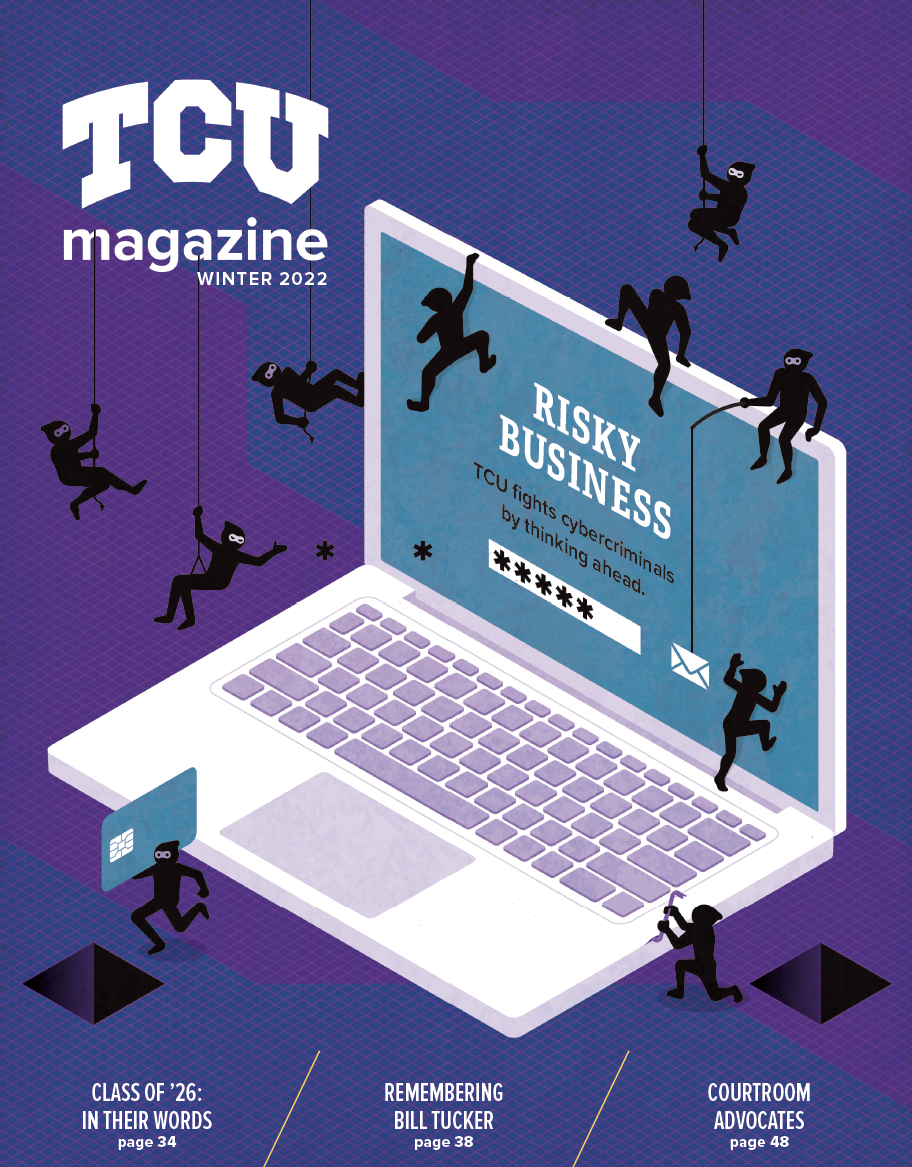How To Avoid A Cyberattack
TCU’s network professionals offer tips for staying safe on the internet.

How To Avoid A Cyberattack
TCU’s network professionals offer tips for staying safe on the internet.
Keep computers up to date with antivirus and antispyware programs. Computer users should go the extra mile to create strong passwords — the more complex the better:
• Use at least one letter, one number and one special character. The password should be at least eight characters long, with upper- and lowercase letters.
• Don’t use something generic, such as password123.
• Don’t use a word similar to other passwords or make a play on your name.
• Come up with something not found in the dictionary and difficult to guess.
• Don’t share the password.
When possible, opt for two-factor authentication, especially on websites that store valuable data about finances or medical history. For example, investment, mortgage, student loan, banking, medical and social media sites.
Install software updates on phones and personal computers immediately. These software updates fix security vulnerabilities.
Do not click on links or open attachments from unfamiliar senders. Email is the preferred method for hackers to gain access to data, computers, phones and money.
Be wary of emails that request personal information, especially alarming-sounding ones that urge an immediate response; the seemingly pressing deadline is used to discourage people from carefully assessing the situation.
Double-check the sending address to verify it matches expectations.
Keep important data — financial records, cherished family photos, etc. — backed up on a regular basis. Ensure that these backups are disconnected from phones or computers, as an infection could render data backups unusable.
Consider copying important data to an external storage drive and placing the hard drive in a separate, safe place.
Always lock computers and handheld devices and use a password-protected screen saver.
Source: Aaron Muñoz, assistant director of IT security at TCU

Your comments are welcome
Comments
Related reading:
Features
Preventing Costly Cyberattacks
TCU fights cybercrime by thinking ahead.
Alumni
Safe Search
Our career expert offers tips for avoiding cybercriminals while looking for a job.